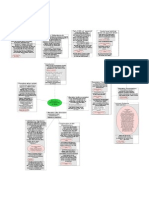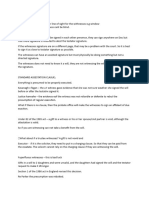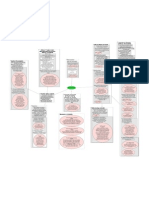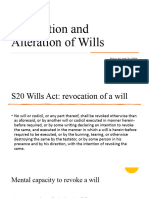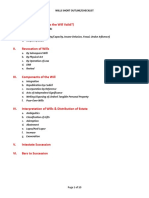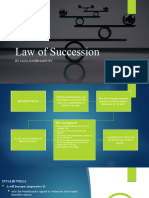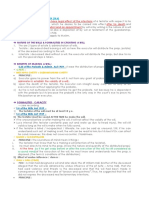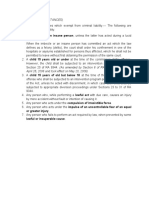0% found this document useful (0 votes)
114 views3 pagesTuto 5 (q2) - Answer
The document discusses the validity of alterations made to a will by Mr. Thorn. It finds that the alteration made in pencil to remove Tulip's name would be invalid, but the alteration to replace Sara's name may be valid if done in pen. It also discusses whether Mr. Thorn could revive the will if he wished. It determines that under section 16 of the Wills Act, he could revive the will through re-execution or a codicil showing intent to revive, so long as the original alteration constituted a valid revocation.
Uploaded by
NAZARENE EZEKIEL A P NANTHA KUMAR UnknownCopyright
© © All Rights Reserved
We take content rights seriously. If you suspect this is your content, claim it here.
Available Formats
Download as PDF, TXT or read online on Scribd
0% found this document useful (0 votes)
114 views3 pagesTuto 5 (q2) - Answer
The document discusses the validity of alterations made to a will by Mr. Thorn. It finds that the alteration made in pencil to remove Tulip's name would be invalid, but the alteration to replace Sara's name may be valid if done in pen. It also discusses whether Mr. Thorn could revive the will if he wished. It determines that under section 16 of the Wills Act, he could revive the will through re-execution or a codicil showing intent to revive, so long as the original alteration constituted a valid revocation.
Uploaded by
NAZARENE EZEKIEL A P NANTHA KUMAR UnknownCopyright
© © All Rights Reserved
We take content rights seriously. If you suspect this is your content, claim it here.
Available Formats
Download as PDF, TXT or read online on Scribd
/ 3




